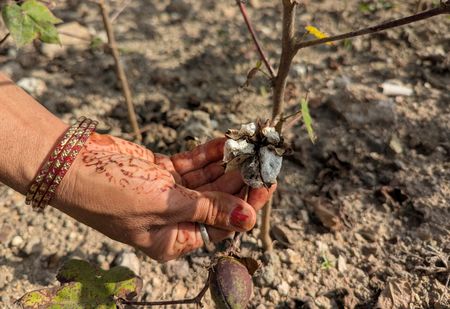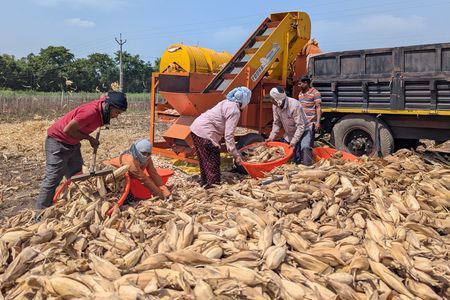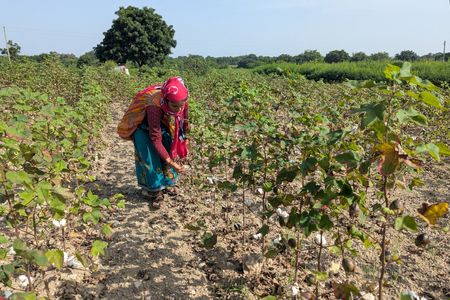By Rajendra Jadhav
DHARASHIV, India (Reuters) -Indian farmers’ hopes for bumper crops following this year’s abundant monsoon rains were dashed by heavy downpours just before harvest that damaged their fields, crushing the dreams of millions who rely solely on agriculture for their livelihoods.
The losses to crops such as cotton and soybean are expected to slow agricultural growth, boost farmers’ debt and cap rural consumption, which had been set to rise after New Delhi slashed taxes on hundreds of consumer items.
“We had hoped to harvest 10 to 12 quintals of soybean per acre, but now we’ll be lucky to get 2 to 3 quintals — and even that will require significant additional expenses,” said farmer Kishore Hangargekar, using a unit equivalent to 100 kg (220 lb).
He was speaking after two days of unrelenting rain flooded his fields and submerged his crops in the district of Dharashiv in the western state of Maharashtra.
Until then, the soybean crop had been thriving, and farmers were readying for harvest.
The reduction in yields from excessive rainfall is likely to halve agricultural growth to 3% to 3.5% in the December quarter, down from 6.6% a year earlier, said Garima Kapoor, economist at Mumbai-based Elara Securities.
Summer-sown crops such as soybean, cotton, rice, pulses and vegetables mature from September, a month that saw rains of 15% above average this year, with some regions getting as much as 115% more than normal.
While agriculture contributes just 18% to India’s economy of nearly $4 trillion, almost half its population of 1.4 billion relies on farming to earn a living.
NO RESPITE FROM RAIN
Now farmers are scrambling to harvest summer crops ahead of winter sowing set to begin next month, but more untimely rain forecast this week could delay planting and damage late-maturing summer crops.
The rain-damaged crops are earning prices well below the government’s minimum support price, as quality has deteriorated.
“Traders are buying the damaged crops for throwaway prices, and we have no choice but to sell,” said farmer Sachin Nanaware, who sold his soybean at a rate of 3,200 rupees ($36) for 100 kg (220 lb), below the government-fixed rate of 5,328 rupees.
Nanaware said he had hoped to buy a motorcycle and a television, but is now worried about repaying his bank loan.
The excessive rain has boosted soil moisture for winter-sown crops such as wheat, rapeseed and chickpea, but many farmers say they lack funds for seeds and fertilisers.
“We need money to buy seeds and fertilisers and to prepare the land,” said farmer Chaya Jawale as she collected cotton bolls brought down from plants prematurely by the rain.
“So, we have no choice but to mortgage our gold jewellery.”
Damage to soybean and cotton crops is expected to boost India’s vegetable oil imports in the marketing year from November by 1.5 million tons to a record 18 million, says industry analyst Thomas Mielke of Oil World.
($1=87.8950 Indian rupees)
(Reporting by Rajendra Jadhav; Additional reporting by Ira Dugal; Editing by Clarence Fernandez)










